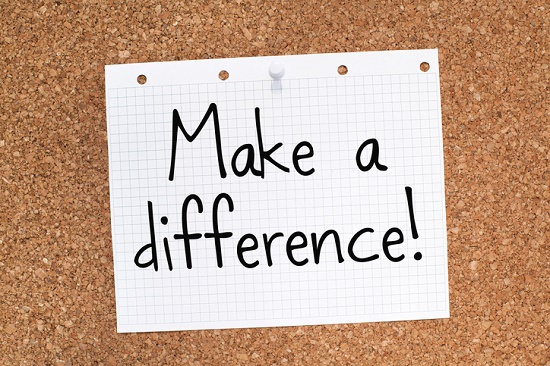
If you already wear hearing aids, you’ve already overcome the odds.
In the US, approximately 48 million individuals have hearing loss, of which 28.8 million could benefit from the use of hearing aids.
Unfortunately, of those age 70 and older, only 30 percent of those who could benefit from hearing aids actually use them. For those age 20 to 69, it’s merely 16 percent.
That’s literally millions of Americans that are missing out on the rewards of healthier hearing—benefits you understand first-hand if you use hearing aids yourself or know someone who does.
So what can you do to boost awareness about the positive effects of hearing aids and the enhancements to the quality of life they offer?
Here are 10 ways to become a hearing health advocate.
1. Talk about hearing loss on social media
Social media is an easy and effective way to spread the message regarding the benefits of healthier hearing. Let people know how hearing aids work, and how they’ve personally improved your life or the life of someone you know.
Although people are generally skeptical of advertising, they’ll always be receptive to personal stories.
2. Volunteer to help those in need
Participate in a local activity like the Hearing Loss Association of America’s Walk4Hearing event, or coordinate your own to boost awareness or money for hearing loss.
Contact your local hearing loss chapter and discover ways you can help out in the community. Visit the Hearing Loss Association of America to find a local chapter.
3. Donate your old hearing aids
If you’re prepared to upgrade your hearing aids to a more recent model, think about donating your old hearing aids to a local organization or hearing clinic.
Your donated hearing aids can be renovated and supplied to those who couldn’t otherwise afford them.
4. Contribute to hearing health organizations
Consider donating to an organization that supports the deaf and hard-of-hearing community, such as the Hearing Health Foundation, Hearing Charities of America, or a local institution.
These organizations use the donations to fund research, to deliver education and support, and to offer financial assistance to those who can’t afford hearing aids or cochlear implants.
5. Start a petition
Most states do not require health insurance plans to cover the cost of hearing aids. Start a petition to introduce to your elected representatives, asking them to recognize hearing health as a vital aspect of overall health.
6. Help someone overcome hearing loss
Plenty of people accept as true the misconception that hearing aids don’t work, or they may even be denying they have hearing loss in the first place.
Help people to recognize and accept their hearing loss and understand that the technological advancements in hearing aids can help them regain their hearing. Help guide them through the steps of choosing a hearing care provider, getting their hearing tested, and adapting to their hearing aids.
7. Advocate for the community
Hearing loop systems send sound directly from the sound source to the individual’s hearing aids. These are found in movie theaters, churches, universities, and auditoriums.
Advocate for the addition of hearing loop systems in the most widely used community venues.
8. Use hearing protection
One of the most effective ways to advocate for hearing health is by becoming a hearing health role model. That means protecting your hearing at loud settings, like at rock concerts or sporting events, with custom made hearing protection.
9. Get your hearing evaluated
If you don’t already use hearing aids, display your dedication to hearing health by having your hearing tested. Share the process on social media and suggests that other people do the same.
10. Wear your hearing aids with pride
Last, you can do your part to get rid of the stigma of hearing loss by wearing your hearing aids with pride. Hearing loss is widespread, similar to vision loss, and wearing hearing aids should be as common and acceptable as wearing a pair of prescription glasses.
